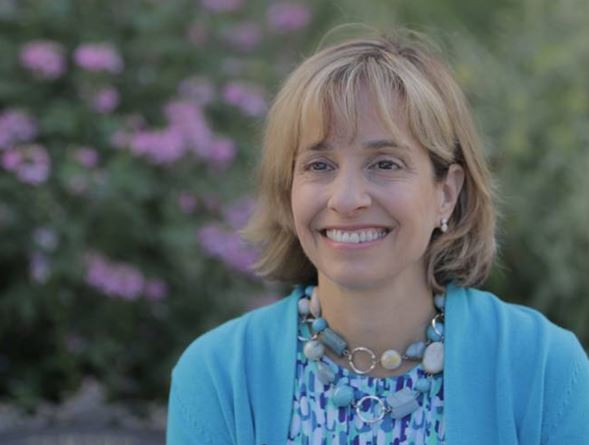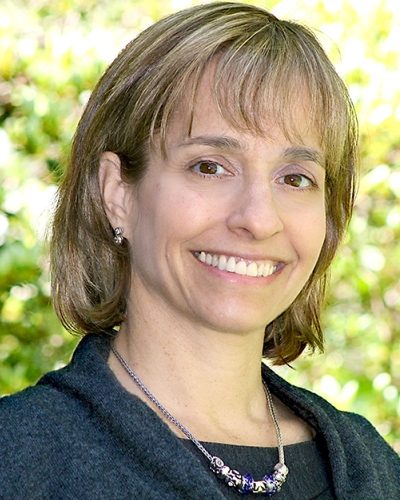Rabbi Asher Knight and Rabbi Judy Schindler were asked about the gifts and strengths of the congregation that Rabbi Schindler is proud to leave behind and upon which Rabbi Knight is excited to inherit and build upon. Here are their reflections on the Torah of Temple Beth El:
It is customary for Jews to study one of the six chapters of Pirke Avot – the Ethics of our Ancestors – on each of the six shabbatot between the holidays of Passover and Shavuot. Found within the Mishnah, Pirke Avot is a collection of rabbinic sayings and ethical teachings. One of my favorite maxims is attributed to Yochanan ben Bag Bag, one of Hillel’s disciples, said to have lived in the first century. We read, “Ben Bag Bag used to say ‘Turn it, and turn it, for everything is in it.’” Most commentators explain that “turn it” refers to the Torah. Learning Torah is a lifelong endeavor, to be examined over and over again, discovering new meanings and nuances with every seasonal turn and with each life transition.
As I ponder the next “turn” in my career and the life of my family, ben Bag Bag’s wise words resonate loudly. Perhaps, “it” refers to more than the Torah, but also to the Temple Beth El community that is in a liminal state of “turning” from one chapter to the next. “Turn it, and turn it, for everything is in it.” As I prepare to assume the role of senior rabbi, I want to share the “it” that drew me to your congregation and to Charlotte.
From everything that I have seen, Temple Beth El is a second home for many families. From daily kindnesses to the outpouring of support in times of celebration and loss, your community helps people to connect with one another through living Judaism. Temple Beth El is a place where dreams can become reality because of the strong partnership between clergy, staff, and lay-leaders. Together, you have created dynamic worship filled with song and spiritual practices, stellar youth learning and programming, and stimulating study for people of all ages. As the horizons of Jewish life shift, you have confronted formidable obstacles with creativity and optimism, choosing to see the opportunity to look beyond traditional “dues” models and recognize the importance of building purposeful and impactful Jewish relationships.
You have also been agents for change, working daily to alleviate pain and suffering while also advocating for solutions to fix systemic problems. Your clergy and leaders have fostered long-term coalitions across lines of race and religion. You have been champions of a strong, secure, and responsible State of Israel. For all these reasons, I am grateful for Rabbi Schindler, the clergy and staff team, and the significant dedication of your phenomenal lay leaders. Rabbi Schindler is leaving an incredible legacy, a veritable “Temple Beth El Torah.” One of my jobs as your next senior rabbi is to learn the congregation’s Torah – the written and unwritten ways that make the congregation what it is.
The truth is that transitions like this take time, not just months, but years. It will take time to learn the TBE Torah, word by word, verse by verse, trope and all. Along the way there will be laughter, celebration, discovery, sadness, memory, and yes, even some mistakes! Rabbi Schindler has been gracious to me and is already working hard to help with my transitions. She will be one of my most trusted teachers and mentors. I humbly ask that you become my teacher as well – to help me understand what you love, what sustains your trust, and share your vision for our synagogue’s future.
Ben Bag Bag’s words also remind us that Judaism is an evolving tradition. The value of our faith is revealed as much through our constant questions as through the transmitted answers. In that way, each of us has a duty to gain knowledge of our congregation’s past, so that we may have agency in creating a meaningful present and a vibrant future. That is our job: to use the complexity and beauty of our tradition as a lens through which we explore our own lives, create connections, and continue to build a relational and sacred community that makes a positive impact upon the lives of our members and our world.
I thank you for the enormous blessing of allowing me to become your next senior rabbi. I look forward to meeting you and introducing you to my family. I’m thrilled to welcome Rabbi Klass, our new assistant rabbi, to Charlotte. Though, please do not ask me to give her driving directions, as I’ll need to learn my way around Providence Road, too! Mazel tov to Rabbis Schindler and Freirich for serving our congregation with excellence and for the excitement and opportunity of the next chapters of your careers.
Rabbi Schindler:
 The many Passover seders we just experienced at Temple Beth El reflect the strong sense of family we have created to which Rabbi Knight speaks. At Beth El, we yearned to celebrate Passover not just with our own families of birth but with our family of Beth El. Most of our seders had more than one hundred participants attending. Our SPICE group had a Senior Seder where we laughed and made light of aging. Our Sisterhood held a chocolate seder where we celebrated the Jewish feminist journey using chocolate as symbols – from bittersweet chocolate to chocolate matzah to chocolate eggs. Our Brotherhood bonded with the Men’s Seder filled with friendship and reflections on their life experiences as men. Our partnership with Jewish Family Services and the Federation of Greater Charlotte led us to introduce a new community Hunger Seder this year. We invited civic leaders as we addressed issues of senior poverty in our community. On the second night of Passover, we had our traditional second night community seder in one social hall as we opened our congregational home to all who yearned to enter and in the second social hall we had a Porch Seder for families with young children. Each demographic at Beth El is family to one another not only at holidays and on Shabbat, but in times of sorrows, at simchas, and in the simple moments of our days.
The many Passover seders we just experienced at Temple Beth El reflect the strong sense of family we have created to which Rabbi Knight speaks. At Beth El, we yearned to celebrate Passover not just with our own families of birth but with our family of Beth El. Most of our seders had more than one hundred participants attending. Our SPICE group had a Senior Seder where we laughed and made light of aging. Our Sisterhood held a chocolate seder where we celebrated the Jewish feminist journey using chocolate as symbols – from bittersweet chocolate to chocolate matzah to chocolate eggs. Our Brotherhood bonded with the Men’s Seder filled with friendship and reflections on their life experiences as men. Our partnership with Jewish Family Services and the Federation of Greater Charlotte led us to introduce a new community Hunger Seder this year. We invited civic leaders as we addressed issues of senior poverty in our community. On the second night of Passover, we had our traditional second night community seder in one social hall as we opened our congregational home to all who yearned to enter and in the second social hall we had a Porch Seder for families with young children. Each demographic at Beth El is family to one another not only at holidays and on Shabbat, but in times of sorrows, at simchas, and in the simple moments of our days.
Rabbi Knight was also drawn to Temple Beth El’s commitment to social justice. I am proud of the ways in which our congregants have labored for progress in our city, state and nation. The Social Justice and Action Committee has taken on tough initiatives such as affordable housing and public school education; the Keshet community has fought for LGBT equality; a large segment of the congregation has shown a commitment to Israel whether travelling there, offering advocacy or fighting for the Democratic/Jewish State of our dreams; the Beth El Board has approved an Advocacy Policy stating not that “we may” address issues of social concern, but that “we shall” address issues of social concern. Our Beth El prayers are not uttered in isolation but with windows looking out onto the outside world so that we can be inspired to create the change for which we petition in worship. We live the value of inclusion both inside and outside our congregational walls.
Just as the Torah of our tradition continuously turns enriching our lives with its wisdom, so will Beth El be enriched and inspired by this turning of the leadership. My 18 years at Temple Beth El have brought blessings beyond measure to my life. I gave 18 months’ notice so that you could seek and find the strongest clergy team possible to lead Temple Beth El and you have succeeded. The leadership team of Temple Beth El has never been stronger. My rabbinic colleagues nationally rave about Rabbi Knight’s stellar reputation as a rabbi and as a mensch and Rabbi Dusty Knight was the most sought-after rabbi of her class. We won the Rabbi lottery! And they won the synagogue lottery for our Beth El members care deeply about each other, care deeply about supporting every facet of Temple life, and they care deeply about their rabbis.





